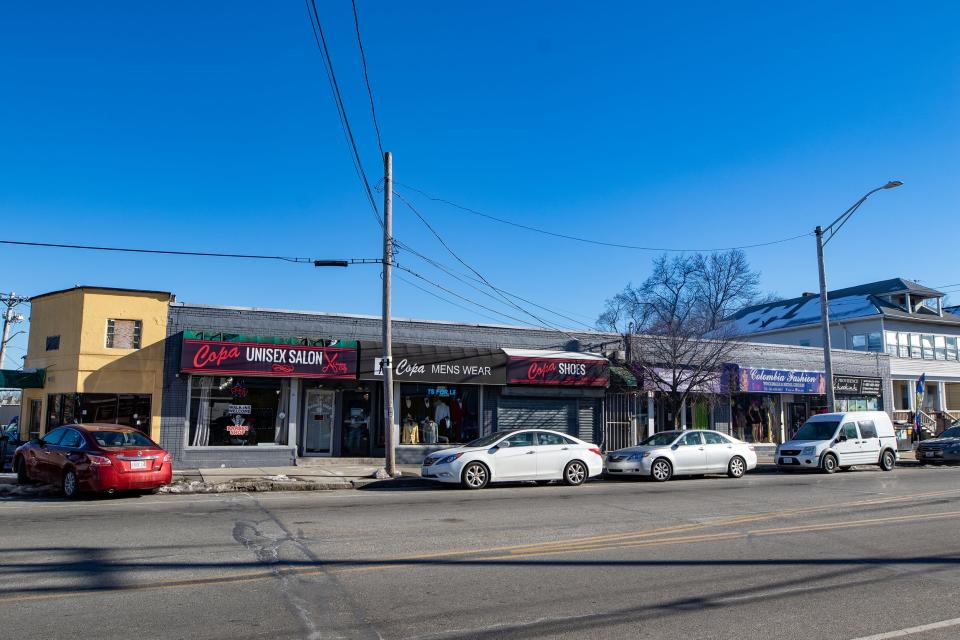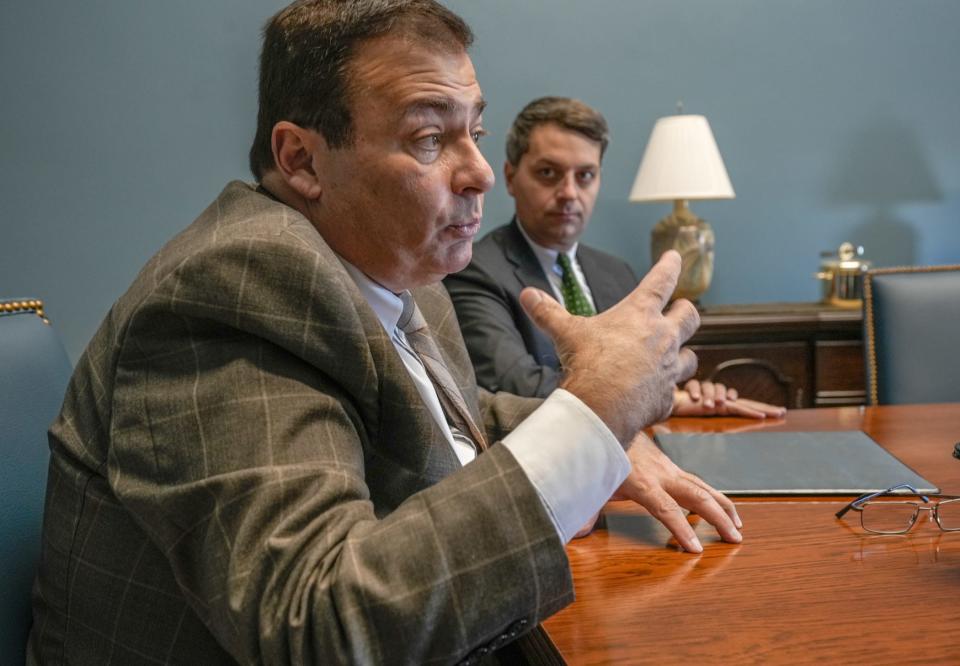Defend the suburbs: Why towns and planners are pushing back against Shekarchi's housing reforms
Rhode Island mayors, planners and other local officials are balking at parts of House Speaker K. Joseph Shekarchi's plan to increase homebuilding statewide..
They want to keep control over what gets built in their communities and the ability to block construction that might change the character of a neighborhood or shopping center.
In particular, the Rhode Island League of Cities and Towns and the American Planning Association object to bills that would legalize homes in commercial districts and block indefinite building moratoriums.
"Allowing residential uses in these [commercial] areas could disrupt the balance of mixed-use development and have long-term impacts on local tax bases, property values and community character," David Bodah, associate director of the league, wrote in testimony to the House Municipal Government Committee.
"This bill represents a wholesale change to zoning in the state," wrote Jane Weidman, legislative committee chair of the American Planning Association's Rhode Island Chapter. "The result could be a rush to convert many commercial areas to residential. While the demand now is for housing, the longer-term impact may result in a permanent loss of commercially used property."

Bill would pave the way for new homes in residential districts
The residential-commercial bill, introduced by Rep. Joshua Giraldo, a Central Falls Democrat, would delete a line in the state zoning enabling law that lets communities ban housing in commercial districts "where residential use is prohibited for public health or safety reasons." They would retain the power to keep residences out of industrial districts.
When he introduced his 15-bill housing package last month, Shekarchi, D-Warwick, highlighted Giraldo's bill as a way to bring housing to derelict strip malls and underutilized properties suffering from the post-COVID downturn in commercial real estate.
Homes, he pointed out at a State House news conference, are considered a less intensive or disruptive use than businesses, and allowing them should reduce traffic and environmental concerns from the commercial status quo.
"You still have to meet all of the requirements as a residential zone, but you would not have to go through the rezoning process," Shekarchi said.

Opposition says new residents have 'net negative fiscal impact' on a town
But local leaders have long been wary of allowing more people to live in their communities.
Increasing residential "density," the number of people who live in a given acreage, can alter the quiet feel of a suburb or rural area, angering existing residents.
And unlike a new fast-food restaurant, gas station or dollar store – which towns can charge high commercial tax rates – new homes often bring new children who need to be educated at public schools at municipal expense.
Republican National Committeeman and Cranston Planning Board member Steve Frias wrote in committee testimony that commercial and industrial properties "usually have a net positive fiscal impact on a municipality, while residential properties usually have a net negative fiscal impact."
"If new residences are allowed to be built in commercial and industrial zones, these new residents may complain about the activities of their neighboring businesses, and seek to have restrictions placed on the operation on them," Frias wrote. "Allowing residences in commercial or industrial zones could have a negative impact on the local school system if the local elementary school near the commercial or industrially zoned property is near capacity."
More: Five ways the RI House speaker's package of bills could change the way housing is built
Another argument: Loss of local control over growth, development
The League of Cities and Towns objects to legislation introduced by North Kingstown Democratic Rep. Robert Craven that would limit development moratoriums to 60 days and make communities provide a "legitimate governmental interest" for them on the basis of local control.
"This loss of local autonomy could result in a diminished local voice and identity, as communities are forced toconform to standardized regulations that may not align with their specific needs or priorities," Bodah wrote for the league. "Preserving local control is crucial for ensuring that decisions regarding development reflect the values and interests of the communities they impact."
The league also opposes a Shekarchi-sponsored bill requiring towns to adopt electronic permitting.
"The initial setup and annual software and professional-service fees associated with e-permitting, as demonstrated by their experience with OpenGov, present a substantial financial strain, especially for smaller municipalities with limited resources," Bodah wrote.
In response to the league and planning association concerns, Shekarchi Tuesday said he has heard them and is "working with them on amendments."
"I realize our proposals will create necessary change, which can be uncomfortable, but the status quo is not working," he wrote in an email. "I welcome their ideas, as well as anyone else’s, as long as the ultimate goal is to create more housing production, which is desperately needed."
What does the League of Cities and Towns support?
The league isn't against the entirety of Shekarchi's housing package. Bodah wrote in support of six bills, including legislation that would create a planning education study commission, allow manufactured homes in single-family neighborhoods, count some mobile homes toward local affordability targets and consolidate planning and zoning boards.
In addition to support from housing advocacy groups, the bill to allow homes in commercial districts is backed by the Housing Network of Rhode Island, the Rhode Island Association of Realtors and state Housing Secretary Stefan Pryor.
This article originally appeared on The Providence Journal: Why RI's towns are pushing back against building more, denser, housing

